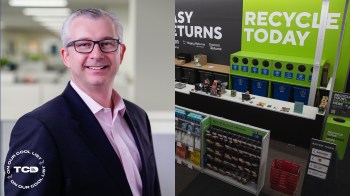A TikTok user is calling out fast-fashion brands for prioritizing trends over quality materials and craftsmanship. And her video is striking a chord online, racking up over 330,000 likes so far.
In the three-minute TikTok video, user mikinleyh (@mikinleyh) urges viewers to pay attention to clothing labels and material composition when shopping.
@mikinleyh ♬ original sound - mikinleyh
"These fast-fashion brands are completely taking advantage of all of us," Mikinleyh says. "They know we aren't looking for quality, and we're looking for what's trending."
The result, according to Mikinleyh? Brands using "the cheapest a** materials they want" and jacking up prices "just because it's a trending item." She cautions viewers not to fall for this tactic.
Fast fashion's emphasis on cheap synthetics and ever-changing trends has major consequences for both consumers and the environment.
Polyester, one of the most common materials used in fast fashion, is a petroleum-based plastic that sheds polluting microfibers with each wash. Polyester production for textiles releases an estimated 706 billion kilograms (about 1.55 trillion pounds) of dirty pollution annually — the equivalent of 185 coal-fired power plants' annual output, according to Vustra.
What's more, polyester clothes tend to wear out quickly, fueling a cycle of consumption and waste. The average American now throws away about 81 pounds of clothing a year. Globally, 92 million tons of textile waste end up in landfills each year, according to data in the National Library of Medicine.
But consumers have the power to break this cycle. As Mikinleyh notes, prioritizing natural fibers like cotton can fill your wardrobe with higher-quality clothes that last longer. Even better are fibers like linen, hemp, and wool, which are biodegradable and often less chemical-intensive to produce than conventional cotton.
Buying secondhand, mending clothes, or hosting clothing swaps can also extend the life of garments while preventing waste. Together, shifting our habits can send a powerful market signal for an apparel industry that respects both people and the planet.
Commenters on Mikinleyh's post clearly agreed.
"I miss quality clothing," one user writes.
"[Please] I'm so tired of polyester," adds another.
A third sums it up: "Even high end brands have cheapened their quality."
Join our free newsletter for cool news and actionable info that makes it easy to help yourself while helping the planet.








